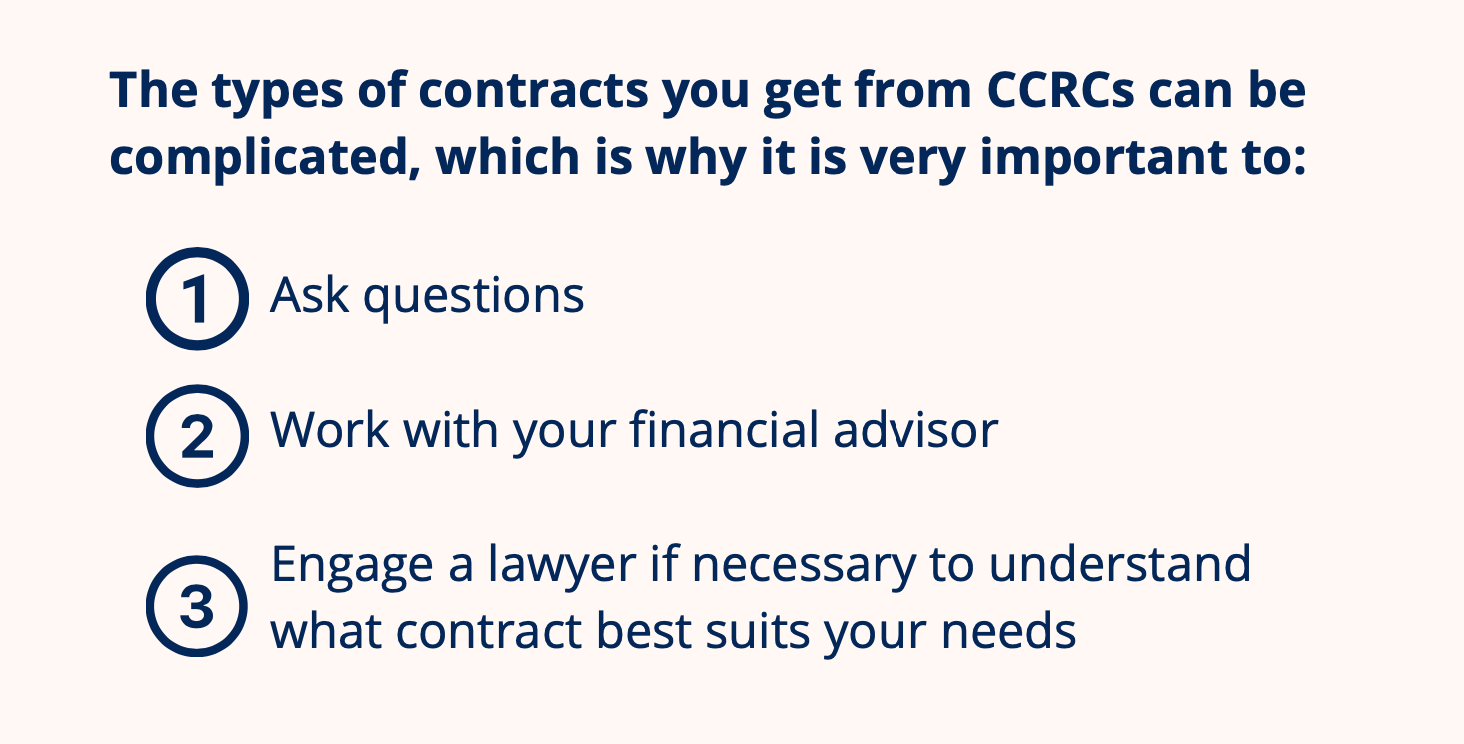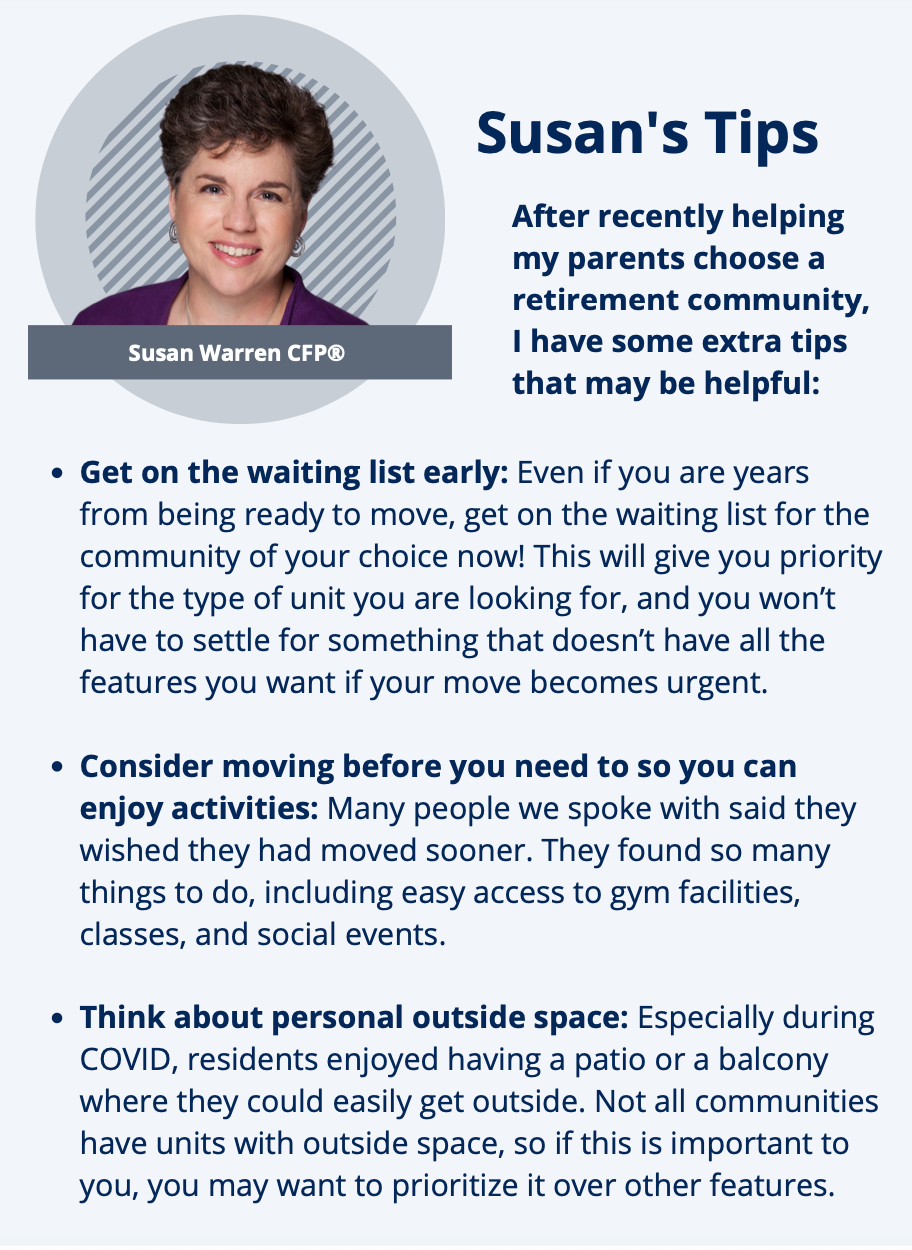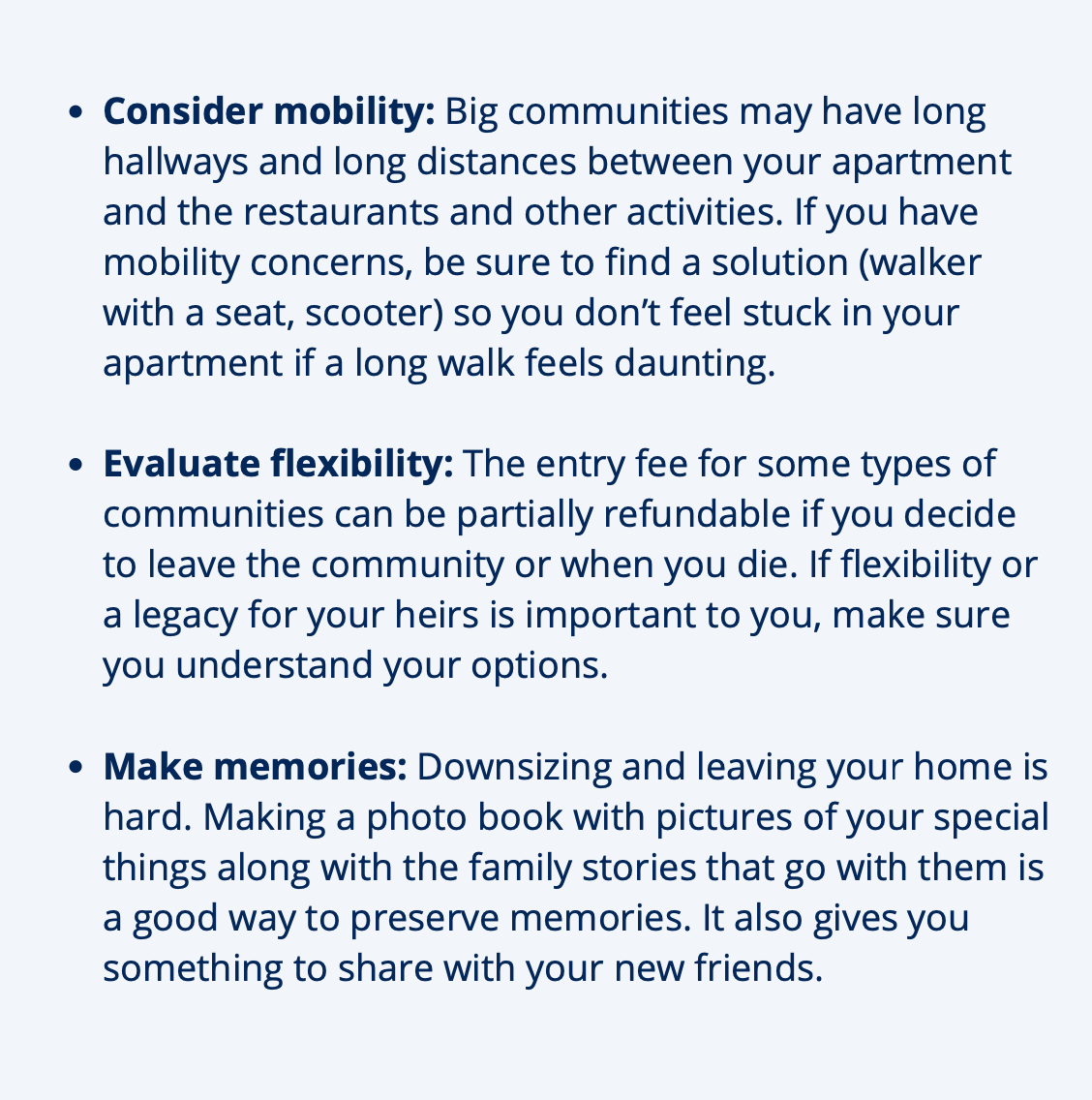
A Few Things You Need to Know About Retirement Communities - CCRCs
Early retirement is an exciting time when you finally are able to pursue your lifelong bucket list. As you age, you begin thinking about what the later part of your retirement years will look like, especially when you want to cut back on homeowner responsibilities and maybe access some senior services.
There are a lot of good options for seniors who want to look at a moving to a retirement community, but there are important differences between what, on the surface, seem to be similar communities.
What are Continuing Care Retirement Communities (CCRCs) ?
CCRCs are communities for older individuals seeking to stay in one place through all their aging phases. This option combines independent living, assisted living, and skilled nursing all in one community. Continuing Care Retirement Communities are often looked at as a campus with all the care you might need as you age. As your care needs increase, you can move to a different part of the campus while remaining in the same community.
If you are interested in living in one location without having to arrange for future care needs, this might be an option to consider.
Aside from care benefits, CCRCs often provide their residents extra services and amenities. For example, many campuses have swimming pools, fitness centers, banks, beauty salons, housekeeping services, daily activities, and more all in one place.
The Different Types of Contracts for CCRCs
The cost of a Continuing Care Retirement Community is usually composed of 1) an entry fee, and 2) a monthly fee. The entry fee varies depending on the type of community and the size of your unit. The monthly fee generally covers utilities, amenities, a meal plan, and, depending on your contract, it can cover long-term care services. The monthly fee typically increases annually with inflation. Your contract should indicate this and spell out any non-inflationary increases.
Review your contract carefully to get a good idea of how much you will spend to avoid big surprises.
Contracts will vary depending on the community you choose. The following present a brief breakdown of the common types of contracts that CCRCs offer.
Extensive Life-Care Contract (Type A)
This contract carries the highest fees; however, it also includes a wide range of lifetime services. It provides assisted living and skilled nursing care with minimal to no increase in your monthly fees if you require a higher level of care.
The entry fee you pay will vary depending on the unit you choose and the community's location. This type of contract essentially acts like a long-term care insurance policy.
Modified Contract (Type B)
This type of contract is more affordable than type A when it comes to entry fees, but long-term care services are provided as needed with an increase in your monthly fees. Under this contract, long-term care services are still generally lower than the market price.
The way you receive your health care services may vary depending on the community. If this plan interests you, be sure to understand the specific ways that the community you choose offers you long-term care.
Fee-for-Service Contract (Type C)
Type C contracts usually offer lower initial entry fees and monthly fees, but you pay market price for all long-term care services such as assisted living, skilled nursing or memory care, and others as needed.
Rental Contract (Type D) & Equity/Co-op (Type E)
Some communities operate with a rental contract (Type D). There is no entry fee, however if you need care, you pay market price on top of your monthly fees. This might be a good option if you want the flexibility to move around instead of tying up a large amount of your money in an entry fee.
Type E contracts allow you to buy a property in the community instead of paying an entry fee. In this case, you would still pay for your monthly fees. Some communities may offer discounted health care service fees while others might charge market price for those services.
Sources & Helpful Links With More Information:
- Where you live matters: https://www.whereyoulivematters.org/senior-living-contracts- explained/
- AARP: https://www.aarp.org/caregiving/basics/info-2017/continuing- care-retirement-communities.html
- Acts Retirement: https://www.actsretirement.org/retirement-resources/resources-advice/retirement-communities-resources/ccrc-vs-assisted-living-vs-nursing-homes/
- https://www.actsretirement.org/latest-retirement-news/blog/2019/8/14/does-a-ccrc-make-sense-for-you/
- Find Continuing Care: https://findcontinuingcare.com/blog/learn- about-ccrc-contract-types
- myLifeSite: https://mylifesite.net/
Book: Find the Right CCRC for Yourself or a Loved One by Ruth Alvarez.
Click on the link below if you want to download this educational fact sheet:








